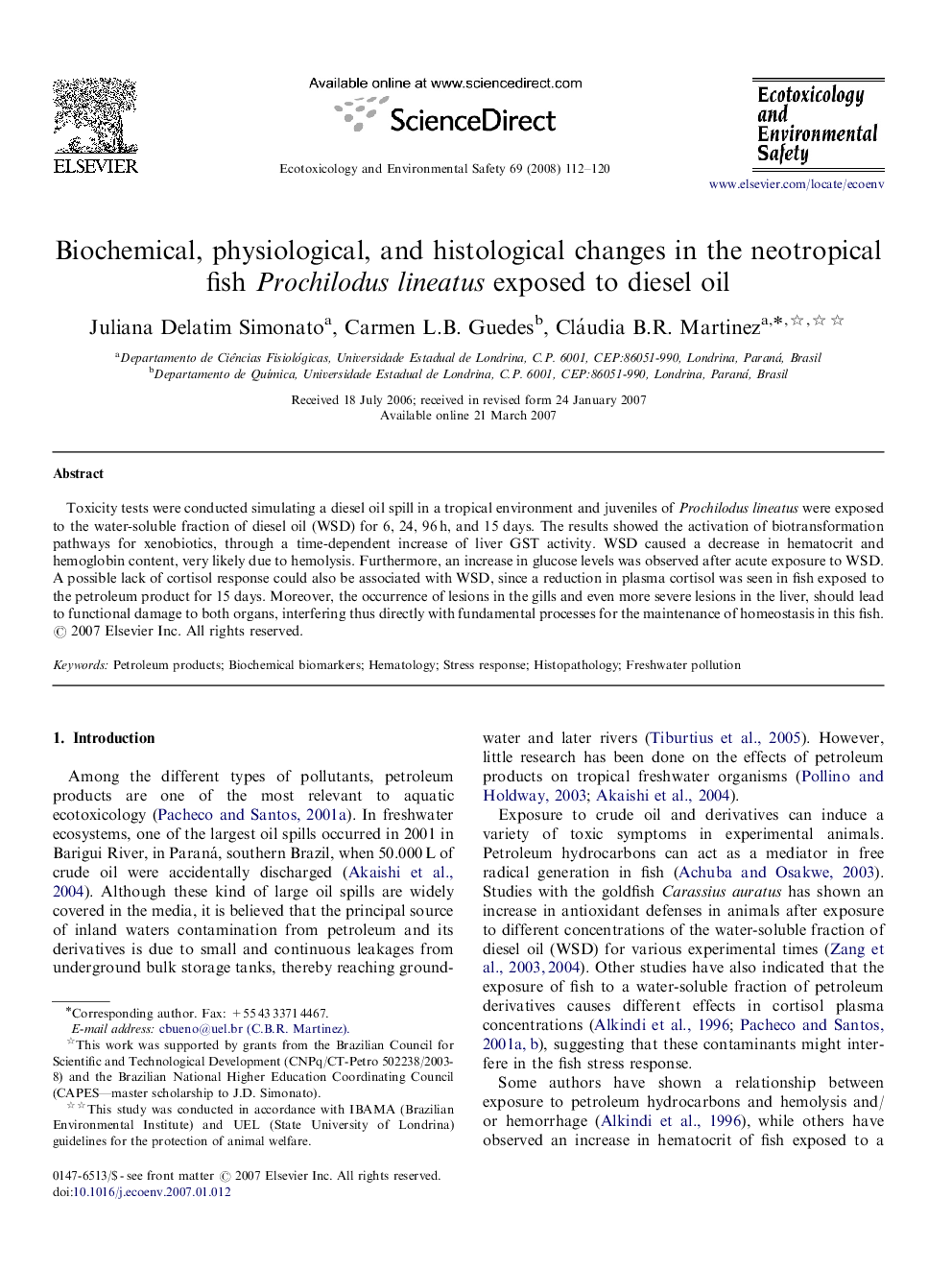| Article ID | Journal | Published Year | Pages | File Type |
|---|---|---|---|---|
| 4422271 | Ecotoxicology and Environmental Safety | 2008 | 9 Pages |
Abstract
Toxicity tests were conducted simulating a diesel oil spill in a tropical environment and juveniles of Prochilodus lineatus were exposed to the water-soluble fraction of diesel oil (WSD) for 6, 24, 96Â h, and 15 days. The results showed the activation of biotransformation pathways for xenobiotics, through a time-dependent increase of liver GST activity. WSD caused a decrease in hematocrit and hemoglobin content, very likely due to hemolysis. Furthermore, an increase in glucose levels was observed after acute exposure to WSD. A possible lack of cortisol response could also be associated with WSD, since a reduction in plasma cortisol was seen in fish exposed to the petroleum product for 15 days. Moreover, the occurrence of lesions in the gills and even more severe lesions in the liver, should lead to functional damage to both organs, interfering thus directly with fundamental processes for the maintenance of homeostasis in this fish.
Keywords
Related Topics
Life Sciences
Environmental Science
Environmental Chemistry
Authors
Juliana Delatim Simonato, Carmen L.B. Guedes, Cláudia B.R. Martinez,
